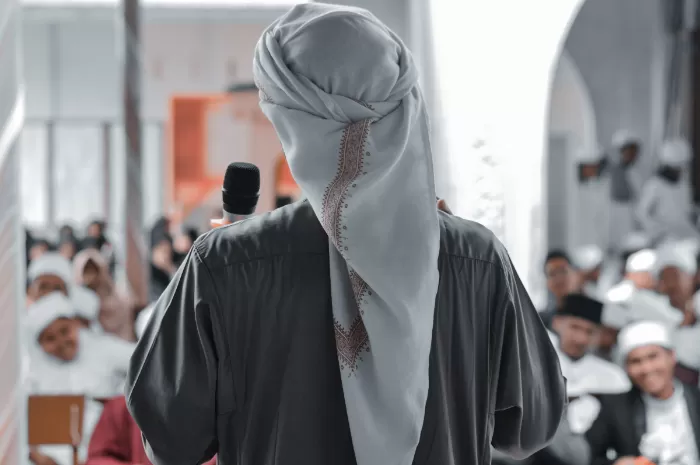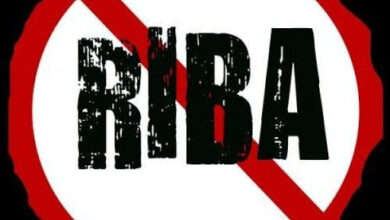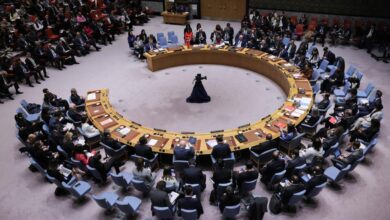Manners When Listening to the Khutbah

DDHK. ORG – The Khutbah is the bow of the Friday prayer which must be listened to by male worshipers. When the Friday sermon was in progress, as reported by Muslim Or Id, a person is prohibited from busying himself with things that can divert his concentration from listening to the sermon.
As mentioned in the words of the Prophet sallallaahu 'alaihi wasallam,
إِذَا قُلْتَ لِصَاحِبِكَ يَوْمَ الْجُمْعَةِ: (أَنْmp
"If you say to your friend, "Be quiet" while the priest is preaching on Friday, he has really done nothing." (Muttafaqun 'alaihi)
His call to his friends to be quiet while the imam was preaching was a form amar ma'ruf nahi evil. But because it was done at the wrong time, the act became not rewarded.
In fact, it has a bad impact on the perpetrators. Because it is clear at the end of the hadith that the Prophet sallallaahu 'alaihi wasallam said, “فقد لغوت”, meaning: “you have indeed done nothing.” Especially when the law of origin is permissible. Certainly even more forbidden.
Meaning of the words of the Prophet sallallaahu'alaihiwasallam: فقد لغوت
(-faqod laghouta- means: "..he really has done nothing.") in the hadith above, he is missed from the reward of the Friday prayer. In the narration of Tirmidhi there is an additional sentence:
ومن لغا فلا جمعة له
"... whoever does in vain, then there is no reward for the Friday prayer." (Imam Tirmidhi said: this hadith is hasan sahih. Other hadith scholars consider this hadith dha'if, it's just that the meaning is correct).
In another narration it is stated,
ومن لغا وتخطَّى رقاب الناس، كانت له ظهرًا
"And whoever does in vain and steps over the shoulders of people, then his Friday is only worth the midday prayer." (Narrated by Abu Dawud, no. 347. Endorsed by Al-Albani in Sahih Abi Dawud
This does not mean that Friday prayers are cancelled. His prayers are still valid, it's just that he escapes the reward of Friday prayers. And this is enough of a big loss for a believer.
There is an exception here, namely it is permissible for the khatib to interact with the congregation, if necessary. Vice versa; a congregation may interact with the Khatib. But this is only a necessity. This means not to disturb the concentration of other worshipers.
Like this happened in the time of the Prophet sallallaahu 'alaihi wa sallam. When he was preaching, one of his friends entered the mosque and sat down immediately. Then the Prophet sallallaahu 'alaihi wa sallam reminded him to stand up for the tahiyyatul prayer at the mosque. (See Sahih Al-bukhari, hadith no. 931)
On another occasion, when famine hit Medina, one of his friends asked the Prophet sallallaahu 'alaihi wa sallam to pray for rain. At that time the Prophet sallallaahu 'alaihi wa sallam was giving his Friday sermon. Then Rasulullah shallallahu 'alaihi wa sallam raised his hands, parallel to his face while praying,
اللَّهُمَّ اسْقِنَا
(Allahummas Qinaa) "O Allah, send us rain."
It rained then and there until the following Friday. (See Sunan An-Nasa'i, hadith no. 1515)
It is also permissible for the congregation to do things related to the khutbah. Like agreeing to the prayer of the preacher and giving blessings to the Prophet sallallaahu'alaihiwasallam.
As for things that have nothing to do with the khutbah: such as writing down the benefits of the sermon, responding to greetings, tasymit someone who sneezes (saying yarhamukallah when his brother says alhamdulillah when sneezing, ed) etc., then it is not permissible.
There is another hadith that explains about manners when the khatib is delivering the Friday sermon, the following is the hadith:
مَنْ تَوَضَّأَ فَأَحْسَنَ الْوُضُوْءَ ثُمَّ أَتَى الْجُمْعَةَ فَاسْتَمَعَ وَأَنْصَتَ, غُفِرَ لَهُ َْمَبَ ْنَ الْجُمْعَةِ وَزِيَادَةُ ثَلاَثَةِ أَيَّامٍ, وَمَنْ مَسَّ الْحَصَى فَقَدْ لَغَى
“Whoever performs ablution and then performs ablution and then comes to the Friday prayer, listens to the khutbah and remains silent, his sins will be forgiven between this Friday and the following Friday, plus three days. And whoever plays with pebbles, indeed he has done in vain." (HR. Muslim)
This second hadith explains the prohibitions related to actions. The first hadith explains about the prohibitions related to speech.
The conclusion is, when the khatib is preaching, a congregation should not keep himself busy with things that can distract him from listening to the Friday sermon. Both are related to speech and deed.
Playing Mobile During Khutbah
It is also not permissible to play mobile phones while the preacher is preaching. The law is the same as the person playing the pebbles mentioned in the hadith above. So someone who is busy playing on his cell phone when the preacher is preaching, he is also missed from the perfection of the Friday prayer reward.
What if someone wants to record the Friday sermon on their cell phone? The answer is that it is still forbidden if it is done while the preacher is preaching.
If he wants to record the sermon, it should be prepared before the khatib starts the sermon. Like when the khatib was on the pulpit or before. The most important thing is that as long as the khatib has not started the sermon, it is permissible to chat or prepare a cell phone for recording and so on. Because the context of the hadith reads:
"If you say to your friend, "Be quiet" while the priest is preaching on Friday, he has really done nothing." (Muttafaqun 'alaihi).
This means that if the priest is not preaching; such as when climbing the pulpit or sitting between two sermons, then what is prohibited in the hadith is permissible for you. [DDHK News]



